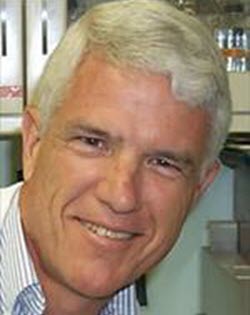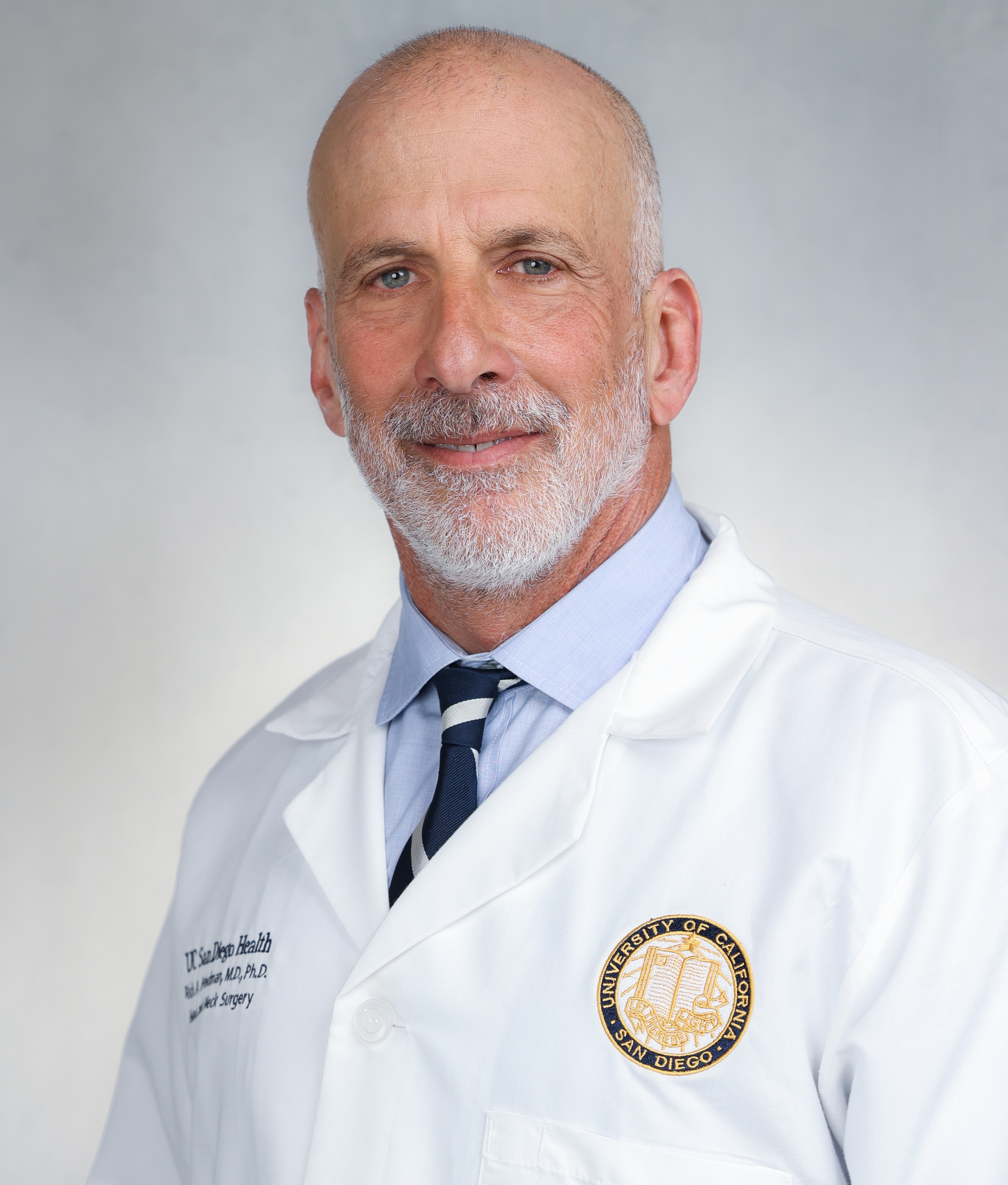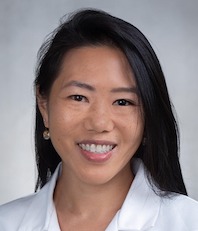Advancing the Understanding and Treatment of Head and Neck Disorders
We continue to have one of the longest running NIH-sponsored T32 mentored research-training grants in the country, and we employ leaders in surgical science, including Dr. Quyen Nguyen, professor of surgery, who was asked to serve as a member of the Clinical Molecular Imaging and Probe Development NIH Study Section, an appointment that reflects her formidable reputation in the rapidly evolving eld of molecular imaging. Drs. Allen Ryan and Jeffrey Harris were featured in The Otonomy Story and the Human Impact of Innovation, which describes how Otonomy-a company cofounded by Division members-translated technology arising from their research into novel treatments for a devastating inner-ear disease that previously had no meaningful treatment options. And in the field of Head and Neck Cancer, Dr. Joe Califano and his team are leading field-changing research.
Our Researchers
 Quyen Nguyen
Quyen Nguyen
Few things are as frustrating to clinical teams as knowing a tumor is present but being unable to see it or unwittingly damaging a nerve during a straightforward resection. To address this challenge, our team of surgeon-scientists has teamed up with molecular biologists, cell biologists, biochemists, chemists, and engineers to develop a transdisciplinary solution: applying state-of-the-art techniques in visualization to "see" what can't be normally seen. Led by Dr. Quyen Nguyen and collaborators, our scientists are developing Live Molecular Navigation (LMN) for Fluorescent Guided Surgery (FGS) also known as "color-coded surgery". With this technology, tumors and nerves can be labeled, so that, with the appropriate lighting, they can be seen and distinguished from other tissues, enabling surgeons to do precision resections of tumors while avoiding nearby critical nerves.
Dr. Nguyen's interest in molecular imaging for surgical navigation began during her fellowship at UCSD where she collaborated with Dr. Roger Tsien (1952-2016), Nobel Laureate, Chemistry 2008. She has been awarded the Presidential Early Career Award for Scientists and Engineers (PECASE, April 2014). The Presidential Award is the highest honor bestowed by the U.S. government on outstanding scientists and engineers beginning their independent careers.
Dr. Nguyen's work has been highlighted in by several high profile media sources including Nature Research Highlights, Nature Science BusinessXchange, Nature Cancer Reviews, The Economist, and Technology Review (MIT). Dr. Nguyen holds R01 funding from the National Institute of Health (NIBIB) and the Burroughs-Wellcome Fund. She was invited to give a TED talk in 2011 on the subject of "color-coded surgery." To date, the website has been viewed over 1 million times.
 Joseph Califano
Joseph Califano
As a world-class physician-scientist, Dr. Califano has translated multiple discoveries from laboratory to clinic, including the application of sequencing technologies to create an early detection method for HPV-related and other head and neck cancers. He actively participates in several areas of investigation including integrative network based molecular analysis of head and neck tumors; detection of recurrent and occult cancer within blood and saliva using molecular biologic techniques; and defining the underlying biology of head and neck cancers. Dr. Califano also currently serves as the lead investigator for clinical trials that explore early detection of head and neck cancers and well as molecular detection of recurrence.
Dr. Califano directs a laboratory focused on the molecular biologic basis of head and neck cancer. He has published over 260 peer reviewed articles related to both the clinical and basic scientific aspects of cancer, and serves on a variety of professional organizations and editorial boards, including the NCI Head and Neck Steering Committee, as well as the Council of the American Head and Neck Society.
 Allen F. Ryan
Allen F. Ryan
Dr. Ryan is involved in a variety of aspects of otologic research. This includes a major focus on auditory neuroscience as it applies to preventing hearing loss and restoring hearing. A second major interest is otitis media, and how the natural protective and recovery responses of the middle ear can be enhanced to prevent ear infections or speed their resolution. Dr. Ryan also works to develop new means to deliver drugs to the middle and inner ears. As Director of Research for Otolaryngology/Head and Neck Surgery, he supports the research efforts of other members of the Division; and is Principal Investigator of the Division's NIH training grant that provides one year of dedicated research time for each of our residents.
Rick Friedman
Rick A. Friedman, MD, PhD, is a board-certified neurotologist, a specialist who treats neurological disorders of the ear. He is a world-renowned expert in the treatment of acoustic neuroma, a benign tumor that develops on the main nerve connecting the ear to the brain. In addition to leading the acoustic neuroma program at UC San Diego Health, he also treats meningioma, neurofibromatosis type 2 (NF2), glomus tumors, hearing impairment, otosclerosis, Meniere's disease, cholesteatoma, superior canal dehiscence and chronic ear infections.
As a professor in the Department of Surgery, Dr. Friedman trains medical students, residents and fellows at UC San Diego School of Medicine. He receives funding from the National Institutes of Health (NIH) for his research on the genetics of common forms of hearing loss.

Theresa Guo
Dr. Theresa Guo is a surgeon scientist who balancing her time between surgical treatment of head and neck cancer, and using novel bioinformatic tools to uncover new understanding of the biology of these disease. Her group seeks to understand post transcriptional changes, including alternative splicing events, which are prevalent in head and neck cancer. We utilize computational biology methods to achieve a deeper understanding of these post transcriptional genomic alterations that are not readily apparent through sequencing alone. Splicing alteration and post transcriptional alterations represent an understudied gap in genomic knowledge that seeks to understand changes that occur between DNA mutations and ultimately expressed protein phenotypes in tumors. By harnessing computational tools, we can come closer to translating this genomic knowledge towards the delivery of precision cancer care in head and neck cancer. Current work is focused on targeting splice altering pathways through novel drugs and capitalizing on the immunogenic nature of novel splicing events to improve response rates to immunotherapy.
